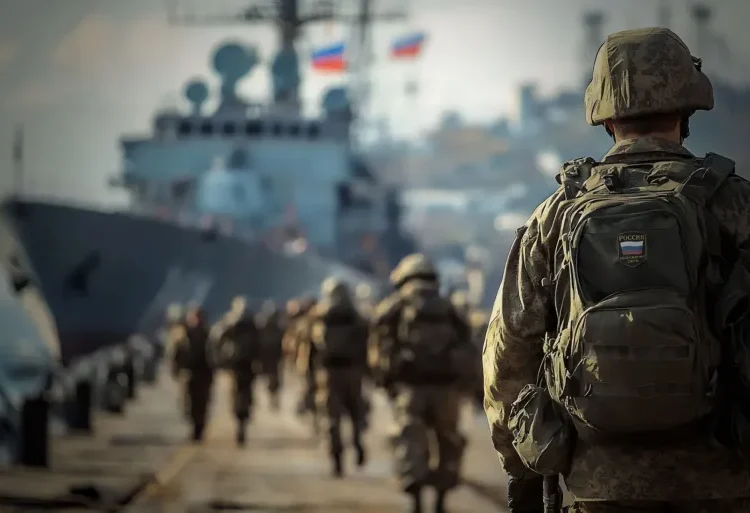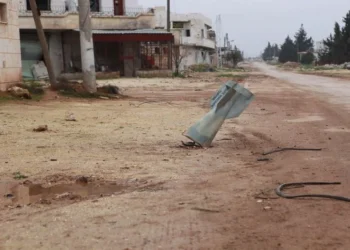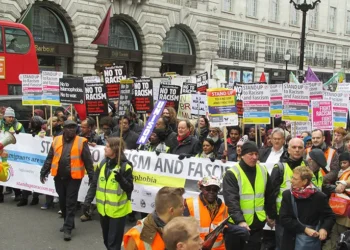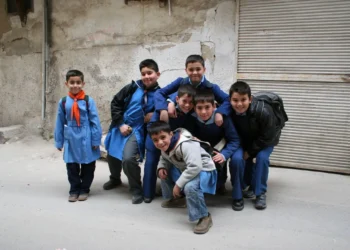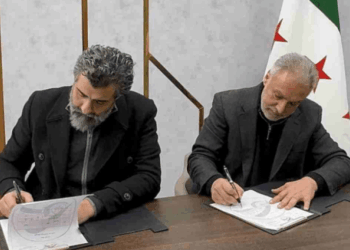Fadel Abdulghany
The tenth anniversary of the Russian military intervention in Syria, which lasted from September 30, 2015, until the fall of the Assad regime on December 8, 2024, is a necessary milestone for re-examining the documented record of violations during that era.
The Syrian Network for Human Rights (SNHR) has meticulously documented a pattern of widespread and systematic violations that have fundamentally altered the course of the conflict, siding entirely with the Assad regime against the popular uprising’s demands for freedom, justice, and political transition.
The Systematic Nature of the Violations
The documented violations committed by Russian forces in Syria show a clear pattern of systematic targeting that goes beyond the bounds of legitimate hostilities; the deliberate killing of civilians, with a disproportionately high proportion of women and children among the 6,993 documented deaths, indicates a widespread targeting of populated areas and raises fundamental questions about compliance with the principles of distinction, proportionality and precautions in international humanitarian law.
A timeline-based distribution of these losses shows a very intense first phase, with 3,564 civilians killed in the first year of its military intervention, including 1,029 children and 404 women, reflecting a deliberate policy to maximize the impact on civilians in service of strategic goals.
The methodology does not stop at direct attacks, but extends to a comprehensive attack on civilian infrastructure; the documentation of 1,262 attacks on vital civilian facilities, including 224 schools, 217 medical facilities and 61 markets, indicates a deliberate strategy to undermine the foundations of civilian life.
The geographical concentration of these attacks, with Idlib at the forefront, followed by Aleppo and then Hama, highlights a recurring pattern of targeting areas outside the regime’s control. The documented killing of 70 healthcare workers and 24 media workers confirms a deliberate effort to silence witnesses and disrupt essential services for the population.
The occurrence of 363 documented massacres also represents the most horrific peak in this systematic pattern; 172 massacres in the first year alone indicate an early adoption of random or disproportionate attacks.
These massacres constitute a flagrant violation of the fundamental principles of international humanitarian law, particularly the prohibition against targeting civilians and the obligation to take all feasible precautions to minimize collateral damage. The use of internationally prohibited weapons, including cluster munitions, further exacerbates the violations and demonstrates a deliberate disregard for established international standards.
The Legal Framework for Accountability
The violations committed by Russian forces in Syria constitute serious breaches of international humanitarian law and international human rights law, many of which amount to war crimes and crimes against humanity.
Under international law, these violations entail specific accountability obligations that do not stop at the direct perpetrators, but extend to the military and political leaders who planned, ordered, or supervised those attacks, based on the principle of command responsibility.
The systematic nature of these violations, their wide scope, and the availability of indicators of deliberate targeting, indicate the availability of the necessary elements for prosecution under international criminal law.
Accountability has two interconnected aspects: individual criminal responsibility and state responsibility for internationally wrongful acts. Russia’s dual role, as both a direct military actor and a political backer, establishes multiple levels of responsibility, particularly through its 18 vetoes in the Security Council to shield the Assad regime from international accountability.
Obstructing justice mechanisms through diplomatic channels constitutes a further violation of the obligation to ensure accountability for serious breaches of international law. Therefore, the pattern of impunity, maintained by military force and perpetuated by diplomatic obstruction, necessitates comprehensive accountability measures targeting both direct perpetrators and systemic enablers.
The right of victims to redress and compensation is a fundamental principle of international law that must be activated through concrete mechanisms; fair compensation must be provided to civilian victims for the human, material and moral losses resulting from Russian violations, and any compensation program must go beyond individual payments to include comprehensive plans for the reconstruction of vital infrastructure and basic services in the affected areas.
The restoration of destroyed schools, medical facilities, and markets is not limited to physical reconstruction; it presupposes a long-term commitment to addressing the structural damage inflicted on Syrian society. Furthermore, the principle of non-repetition, as a fundamental element of reparations, requires effective safeguards to prevent similar violations from recurring, necessitating fundamental changes in military doctrine and operational procedures.
Standards for Normalizing Relations
Any Syrian pursuit of normalizing relations with Russia must be based on a solid foundation of transitional justice that upholds the rights of victims and ensures accountability for past violations. The Syrian government must structure any future relationship or cooperation with Russia within a framework that establishes legal responsibilities toward affected civilians. Simply acknowledging violations is insufficient; active engagement in accountability processes is essential, including providing the necessary information for investigations and prosecutions.
The transitional justice framework must include interconnected processes: fact-finding mechanisms that create a comprehensive record of violations, criminal prosecutions of those responsible for the most serious crimes, reparations programs that address individual and collective harm, and institutional reforms that prevent recurrence.
The documentation work carried out by SNHR over fourteen years, despite systematic smear campaigns and Russian cyberattacks that sought to undermine its credibility, constitutes a proof-based pillar for these operations, as preserving evidence in accordance with legal standards and building comprehensive databases provides an indispensable foundation for any legitimate peace process.
The comprehensive documentation of Russia’s violations in Syria provides a damning record of systematic breaches of international law that amount to war crimes and crimes against humanity. The scale and pattern of these violations, from the killing of thousands of civilians to the systematic destruction of vital infrastructure, reveal a deliberate policy of targeting civilian populations to achieve military and political objectives.
The framework of international law imposes unequivocal accountability through independent investigations, criminal prosecutions that activate command responsibility, and comprehensive reparations programs that address both individual and collective harm.
Therefore, any path toward normalizing relations with Russia must pass through the gateway of justice and accountability. Diplomatic statements are insufficient; concrete actions are required: acknowledging legal responsibility, actively cooperating with accountability mechanisms, disclosing information that supports investigations, providing fair compensation to victims, and handing over those responsible for crimes to face justice, foremost among them Bashar al-Assad.
The documentation, preserved through years of systematic work despite attempts at suppression and discrediting, forms the evidentiary basis for these efforts.
Without genuine accountability, any normalization will be a betrayal of the victims and a perpetuation of impunity, because justice is not an obstacle to peace, but rather its foundational condition for ensuring recognition of the suffering of Syrians and providing effective guarantees of non-recurrence.
